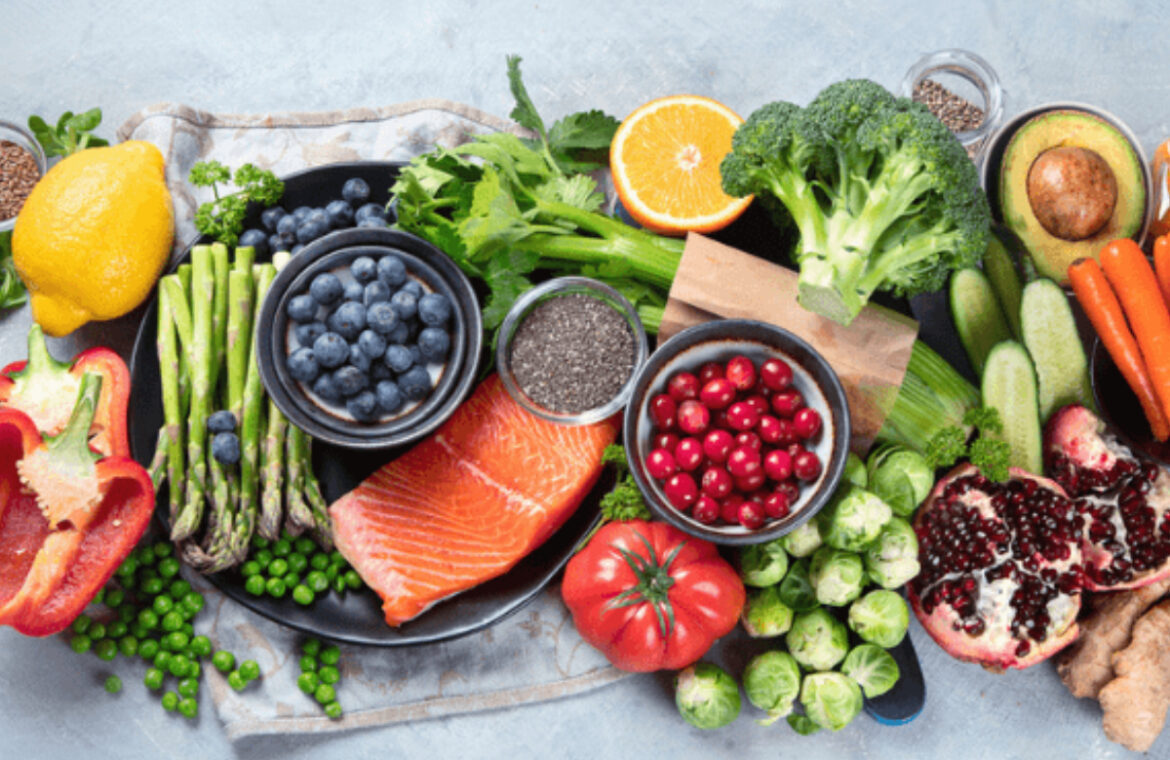While genetics and external factors like eye strain play significant roles in eye health and vision, it’s essential to recognize that a well-balanced diet can have a profound impact on your ocular health.
Research Shows That a Healthy Diet Can Impact Eye Health:
While genetic predispositions can’t be changed, research has consistently shown that certain vitamins and nutrients can promote eye health and prevent vision-related conditions. Here are some key findings:
- The AREDS Study: A 2013 update study from the Age-Related Eye Disease Study (AREDS) found that nutrients such as lutein and zeaxanthin are crucial for maintaining eye health. These phytochemicals reduce the risk of age-related macular degeneration (AMD) and cataracts.
- Vitamin E and Cataracts: Meta-analysis research conducted in 2015 demonstrated a significant association between vitamin E intake and a reduced risk of age-related cataracts (ARC).
- Omega-3 Fatty Acids: A study from 2007 led by Professor Lois Smith of Harvard Medical School suggested that omega-3 fatty acids, particularly EPA and DHA, may prevent proliferative retinopathies, a leading cause of blindness.
Beneficial Vitamins & Nutrients for Eye Health:
To support your eye health, there are specific vitamins and nutrients you should include in your diet:
- Lutein and Zeaxanthin: These phytochemicals are essential for reducing the risk of AMD and cataracts, as well as other chronic eye diseases.
- Essential Fatty Acids (Omega-3s): Omega-3 fatty acids, such as EPA and DHA, are vital for proper vision development and maintaining eye and retinal function.
- Vitamin C: As an antioxidant, vitamin C can help slow age-related macular degeneration and vision loss, especially when combined with other eye-healthy nutrients.
- Zinc: Concentrated in the eye, zinc helps transport vitamin A from the liver to the retina, where it aids in the production of melanin, a pigment crucial for eye protection.
- Vitamin E: This antioxidant protects your eyes from harmful free radicals, which can damage healthy eye tissue.
Best Foods for Eye Health and Vision:
To ensure you’re getting the right nutrients for eye health, incorporate the following foods into your diet:
- Fish: Fatty fish like tuna, sardines, trout, mackerel, and herring are rich sources of omega-3 fatty acids.
- Broccoli: High in vitamin C, lutein, and zeaxanthin, broccoli is a versatile and nutritious addition to your diet.
- Nuts and Legumes: Walnuts, cashews, Brazil nuts, and lentils are excellent sources of omega-3s and vitamin E.
- Seeds: Hemp seeds and chia seeds provide omega-3 fatty acids and vitamin E.
- Citrus Fruits: Lemons, oranges, and grapefruits are packed with vitamin C, benefiting your eyes.
- Eggs: Eggs are rich in omega-3s, lutein, and vitamin E, supporting your eye health.
- Leafy Greens: Spinach and kale, high in lutein and zeaxanthin, are essential for your eyes. Cooking these greens may enhance nutrient absorption
Can Diets Increase the Risk of Vision Problems?
Unhealthy diets filled with highly processed, nutrient-poor foods may increase the risk of eye problems. Research indicates that a high-fat diet composed of processed foods may raise the risk of developing age-related macular degeneration (AMD).
Other dietary factors that can impact eye health negatively include:
- Diet Soda: Excessive consumption of diet soda is associated with a higher risk of proliferative diabetic retinopathy, a progressive retinal disease.
- Dehydration: Insufficient water intake can lead to dry, irritated, or itchy eyes. Proper hydration is vital for eye health.
- High Sodium Intake: High-sodium diets may increase the risk of cataracts.
- Diabetes: Diabetes can lead to blurred vision and progressive eye conditions, including diabetic retinopathy, which can ultimately cause blindness.
- Carbohydrates: Diets high in refined carbohydrates may increase the risk of age-related macular degeneration progression. These carbohydrates lack essential nutrients and fiber and are linked to AMD.
Talk to Your Doctor:
Before making significant dietary changes to improve your eye health, consult an optometrist or eye specialist. They can offer personalized guidance and tailor a diet plan to meet your specific needs.
Your eye specialist can help you create a diet that supports your eye health, reduces the risk of age-related eye diseases, and ensures long-lasting optimal vision. This is especially important if you have diabetes or other health conditions that impact your nutritional requirements.

